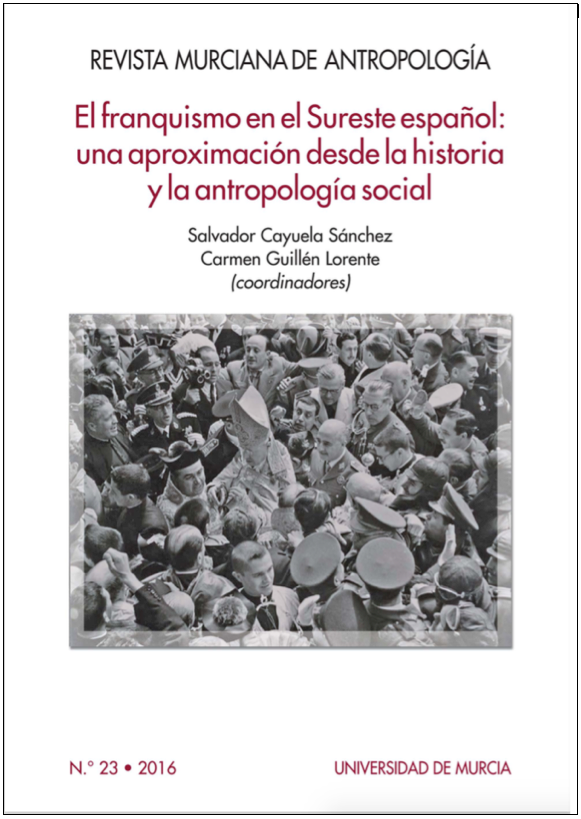The justification story. A tool for the analysis of Francoism
Abstract
This article faces the question of how to analyse biographical testimonies from the perspective of anthropological investigation. To this end, we inquire into the formal dimension of the testimonial story noting how people who have lived their childhood during the beginning of Francoism speak about their lives in that time. Here we will study a narrative form used by subjects of that generation to transmit their ideas and perceptions: the «justification» story, a kind of subgenre of the narrative story. The analysis of the testimonies allows for us to look into subjective versions of divergence between social rules and individual activities, thereby contributing to the analysis of the social phenomenon and the condcious mind. The first part describes the context of the biographical and historiographical research for the historical memory of Francoism. A second part introduces the characteristics and the possibilities of the biographical interview. The third section uses excerpts of interviews as examples to unravel the operation of the justification story as a tool for the analysis of the Francoism socio-cultural phenomenon.
Downloads
-
Abstract2867
-
PDF (Español (España))332
Las obras que se publican en esta revista están sujetas a los siguientes términos:
1. El Servicio de Publicaciones de la Universidad de Murcia (la editorial) conserva los derechos patrimoniales (copyright) de las obras publicadas, y favorece y permite la reutilización de las mismas bajo la licencia de uso indicada en el punto 2.
2. Las obras se publican en la edición electrónica de la revista bajo una licencia Creative Commons Reconocimiento-CompartirIgual 4.0 Internacional. Se pueden copiar, usar, difundir, transmitir y exponer públicamente, siempre que: i) se cite la autoría y la fuente original de su publicación (revista, editorial y URL de la obra); ii) se mencione la existencia y especificaciones de esta licencia de uso.
3. Condiciones de auto-archivo. Se permite y se anima a los autores a difundir electrónicamente las versiones pre-print (versión antes de ser evaluada) y/o post-print (versión evaluada y aceptada para su publicación) de sus obras antes de su publicación, ya que favorece su circulación y difusión más temprana y con ello un posible aumento en su citación y alcance entre la comunidad académica. Color RoMEO: verde.













